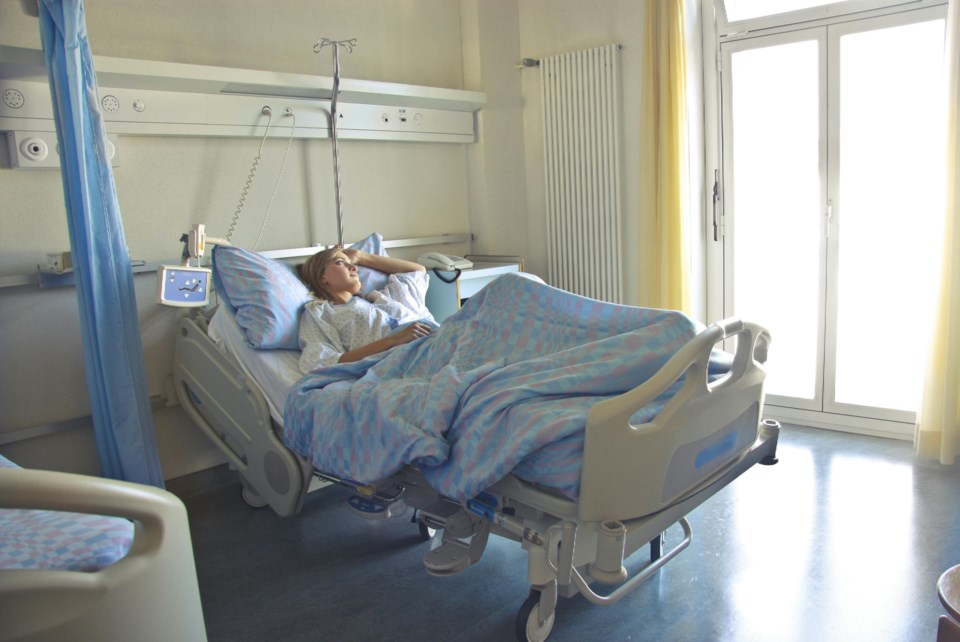What started as medical assistance in dying (MAID) for the terminally ill has morphed into something far darker.
Today, Canadians with disabilities and chronic illnesses—people with years or decades left to live—are being euthanized under laws that have expanded too far, too fast. Even the United Nations is sounding the alarm, urging Canada to roll back its 2021 expansion and stop the spread of state-sponsored death.
After 10 years of MAID expansion and with a federal election looming, party leaders must commit to halting this dangerous drift and protecting vulnerable Canadians.
MAID was first legalized in Canada in 2016, intended as a limited program for terminally ill adults facing unbearable suffering at the end of life, what is now known as Track 1 MAID. But in 2021, the federal government created a second category, Track 2 MAID, opening eligibility to Canadians who are not dying but who live with disabilities or chronic illnesses.
In 2023 alone, more than 600 Canadians were euthanized under Track 2. The actual number could be even higher, as the criterion of a “reasonably foreseeable natural death” has been interpreted loosely. Some groups have argued that no clear prognosis is necessary at all.
Since this expansion, Canada has witnessed alarming consequences. The United Nations Committee on the Rights of Persons with Disabilities highlights several, including the devaluation of the lives of persons with disabilities and Canada’s ongoing failure to provide adequate supports for those in need.
The committee monitors compliance with the Convention on the Rights of Persons with Disabilities, an international treaty that Canada has signed, making its recommendations especially significant. It has called on Canada to repeal Track 2 MAID, reject any expansion to include mature minors or advance requests, invest in support services, and establish a federally independent oversight body.
As a state party to the Convention, Canada is bound to take these concerns seriously. How will the next government respond?
Closer to home, reports from the Ontario coroner’s office reveal that people are accessing euthanasia due to socioeconomic and psychological vulnerabilities. Mental illness, lack of social support and addictions are going unaddressed, while vulnerable Canadians are being approved for MAID.
The Ontario coroner’s committee reviewing MAID in the province also found that a higher proportion of those accessing Track 2 MAID come from highly marginalized populations compared to Track 1 recipients. As Dr. K. Sonu Gaind observed, “The medical disability becomes the foot in the door to open eligibility for MAID, but social suffering pushes the marginalized through that door to seek state-sponsored death for their life struggles.”
Rather than receiving the care they need, Canadians are being offered MAID simply because they have a condition that makes them eligible. Health Canada’s own data confirms this grim reality: among Track 2 recipients, more than 47 per cent cited isolation or loneliness, and nearly 50 per cent reported feeling like a burden to family, friends or caregivers. These are not medical conditions.
When veterans seek help and are offered MAID instead, or when a Canadian man with disabilities is offered death rather than support, their lives are devalued. Others consider or choose MAID because of inadequate supports, services or treatment options. Offering euthanasia as a solution to disability or chronic illness undermines efforts to improve treatments and care for those living with these conditions.
Despite these warnings, the federal government continues to pursue further expansion. MAID is still scheduled to include people with mental illness as their sole condition by 2027. Ottawa has also launched consultations on expanding MAID to allow advance requests from people who may lose the capacity to consent at the time of their death, for example, individuals diagnosed with conditions such as dementia.
With the election underway, party leaders must commit to halting further expansion of MAID. But they must go further. They must promise to protect Canadians by prohibiting MAID for those who are not dying.
We have seen the consequences of Canada’s current MAID regime. It is time to reject state-sanctioned death as an answer to suffering and commit to suicide prevention and life-affirming care for all Canadians, not just the able-bodied.
Daniel Zekveld is a policy analyst with the Association for Reformed Political Action (ARPA) Canada.
The commentaries offered on SaskToday.ca are intended to provide thought-provoking material for our readers. The opinions expressed are those of the authors. Contributors' articles or letters do not necessarily reflect the opinion of any SaskToday.ca staff.




